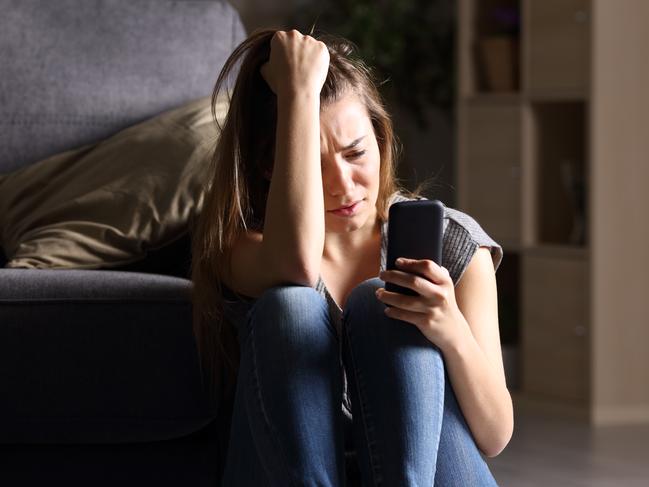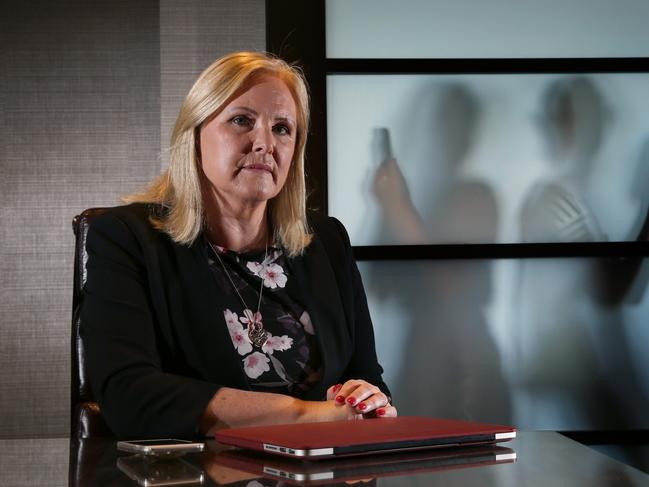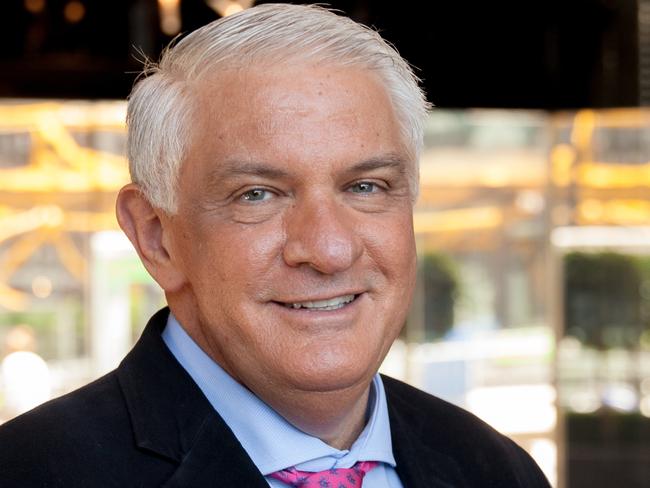National Kids Helpline survey reveals alarming reasons why children and teenagers sext
Shocking survey results reveal two-thirds of young people have sent or received a naked photograph, and why children are doing it.
QLD News
Don't miss out on the headlines from QLD News. Followed categories will be added to My News.
CHILDREN as young as eight are sexting, with an alarming new survey revealing two thirds of young people have sent or received a naked photograph.
The Courier-Mail today reveals the results of a shocking national survey which shows the majority of Australian youth have sent or received an explicit image.
Year 6 kids sending dick pics, says concerned parent
Children still at primary school sexting, at risk from predators, warn police
Sexting research finds reasons why young people choose to send explicit pictures
And they explain, in their own words, why they felt pressured to do so.
One of the nation’s top cyber safety experts, former police officer Susan McLean, said the disturbing trend was growing, and much younger children were engaging in the activity.
“The youngest I’ve had is Grade 4, aged eight and nine, and certainly by Grade 6 it ramps up and I don’t think I could find a girl at the end of Grade 7 that hasn’t been asked for nude photos,” she said.
“The amount of young girls that are harassed for nude photos from boys is disturbing and the amount of young boys that share dick pics just for fun is also very disturbing.”
The survey of 330 people aged nine to 25 years by national counselling service Kids Helpline found two-thirds of respondents had been involved in sexting.
Nearly half said they had sent an image to someone else.
Survey respondents, two-thirds of whom were female, said they sent sexts because it made them feel a “rush of adrenaline”, “(it) made my boyfriend happy”, “he forced me to do it”, “I was in an inappropriate relationship with my coach” and “I want to prove I loved that person”.

Ms McLean said generally there were four reasons why young people sent sexts: they were groomed by a predator into sharing them, it was seen as funny or a joke, to impress or gain love, or as a result of harassment by a peer or someone slightly older.
“Overall, it tells us that it’s concerning that we’ve got kids who are engaging in this behaviour,’’ she said.
Kids Helpline virtual services manager Tony FitzGerald said the latest survey results were concerning.
“We know from the data that half of the respondents told us they had sent an image, we are talking about children here, and in some cases the responses indicate they felt in some way pressured into sending these images,” he said.
“They felt in some way threatened if they didn’t continue to send the messages, there would be consequences.”

Mr FitzGerald said this was also observed when children or teenagers contacted the counselling service and were in distress because they had been convinced or coerced into sending an image.
Child psychologist and digital expert Michael Carr-Gregg said young people were not sufficiently developed to comprehend the likely consequences of sending a nude photograph to someone else.
“The moment they get to school, that creates an environment where there is greater mobile phone use and social media because that’s the way kids communicate,” he said.
“You‘ve got a brain that isn’t fully developed yet, and a key characteristic of kids these ages is the inability to predict the consequences of their actions, so they don’t think about the reputational damage, the illegality of it, because psychologically they’re 10 foot tall and bulletproof.’’

Dr Carr-Gregg said the psychological implications would vary between children, but sexting could lead to anxiety and depression.
Sexting involving children may constitute a criminal offence, such as making, possessing, or distributing child exploitation material, under the Criminal Code, a Queensland police spokesperson said.
In deciding whether to pursue charges, police would consider whether the child was a willing participant, whether the interaction was between people of disparate age and mental capacity (e.g. adult and child), the nature of the relationship and the context in which the sharing occurred.
Mr FitzGerald said young people need not feel powerless.
“The e-Safety commission has had fantastic results in having behaviour stopped and images that have been shared taken down online,” he said.
“Young people can always reach out to Kids Helpline (1800 55 1800) and have a confidential conversation.”


